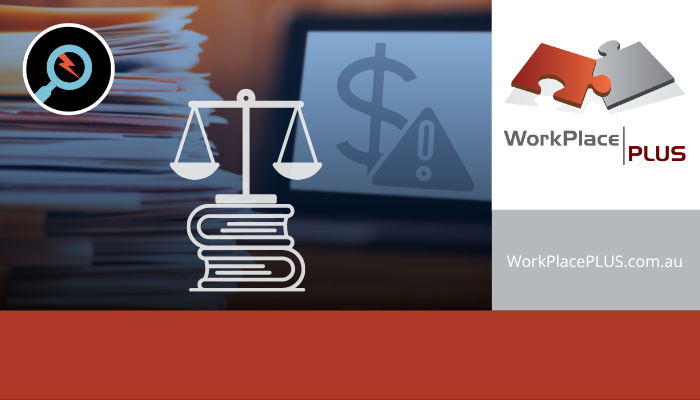7 standards to satisfy your positive duty under Respect@Work laws
- WorkPlacePLUS
- Mar 5, 2024
- 2 min read
Updated: Jul 22, 2024

The Anti-Discrimination and Human Rights Legislation (Respect at Work) Act 2022 introduced a new positive duty on employers to prevent and eliminate discrimination, workplace sexual harassment and victimisation in the workplace. This means proactive and meaningful action must be taken to prevent these unlawful behaviours regardless of whether someone has made a complaint.
While these employer obligations have been in effect since December 2022, the topic returned to the spotlight in 2024 because on 12 December 2023, the Australian Human Rights Commission (AHRC) gained new powers to investigate and enforce employers’ positive duty under the Respect At Work Act 2022.
The AHRC has identified seven minimum standards which outline what they expect employers to do to satisfy the positive duty. These are:
1. Leadership
Understand your Respect@Work obligations and have up-to-date knowledge about relevant unlawful conduct.
Ensure that appropriate measures for preventing and responding to relevant unlawful conduct are developed, recorded in writing, communicated to workers and implemented.
Regularly review the effectiveness of these measures and update workers.
Be visible in your commitment to safe, respectful and inclusive workplaces that value diversity and gender equality.
Set clear expectations and role model respectful behaviour.
2. Culture
Foster a culture that is safe, respectful and inclusive and values diversity and gender equality.
Foster a “speak up culture” that empowers all workers (including leaders and managers) to report relevant unlawful conduct.
Foster a culture that minimises harm and holds people accountable for their actions.
3. Knowledge
Develop, communicate and implement a policy regarding respectful behaviour and unlawful conduct.
Support workers (including leaders and managers) to engage in safe, respectful and inclusive behaviour through education and training.
4. Risk management
Recognise that relevant unlawful conduct is an equality risk and a health and safety risk.
Take a risk-based approach to prevention and response.
5. Support
Ensure that appropriate support is available to workers (including leaders and managers) who experience or witness relevant unlawful conduct.
Ensure that workers are informed about the available support, and can access the support, regardless of whether they report the conduct.
6. Reporting and response
Ensure that appropriate options for reporting and responding to relevant unlawful conduct are provided and regularly communicated to workers and other impacted people.
Ensure responses to reports of relevant unlawful conduct are consistent and timely.
Ensure that the options for reporting and responding to relevant unlawful conduct minimise harm to, and victimisation of, people involved.
Ensure that consequences are consistent and proportionate.
7. Monitoring, evaluation and transparency
Collect appropriate data to understand the nature and extent of relevant unlawful conduct concerning their workforce.
Use the data they collect to regularly assess and improve the work culture, as well as to develop measures for preventing and responding to relevant unlawful conduct.
Be transparent about the nature and extent of reported behaviours that could constitute relevant unlawful conduct concerning their workers and actions taken to address it.
Responding to unlawful workplace conduct can be complicated. WorkPlacePLUS can support you to manage the work culture, address workplace issues and meet your positive duty under anti-discrimination and work, health and safety laws. For more information, please contact us today.





